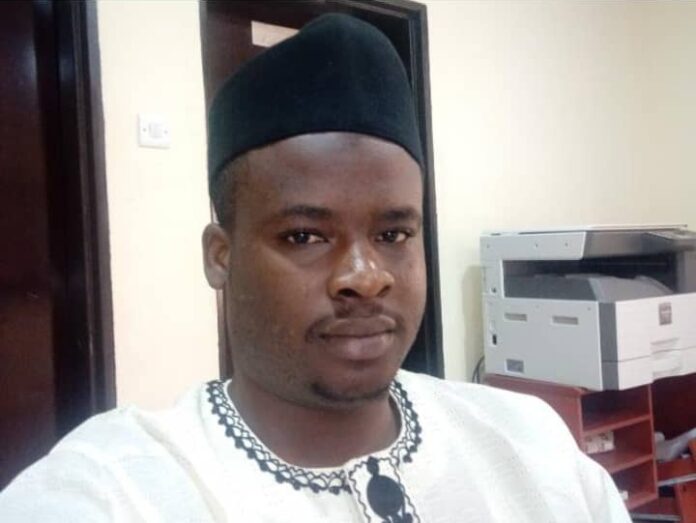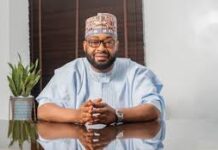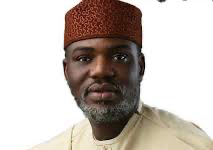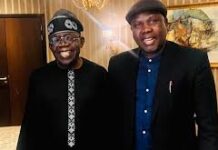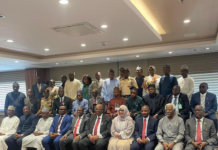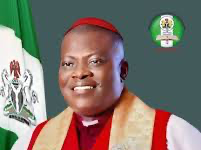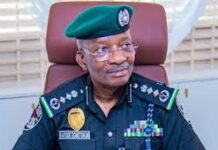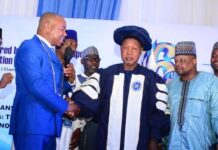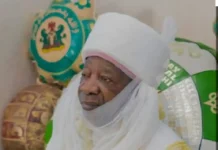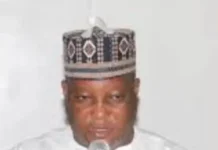Democracy Day amidst Revolutionary Pressures in Nigeria by Umar Musa
Read Also:
POLITICS DIGEST – To infuse some of the words of Abraham Lincoln, Democracy represents a government of the people, by the people and for the people. The 20th century witnessed a rapid attempt to institutionalize democracy, in which the concept attracted great attention in the wave of authoritarian and totalitarian rule around the globe. It is within the orbit of authoritarianism that Nigeria returned to democracy in 1999, after a period of prolonged military rule. The postulation of democracy as posited by Lincoln appears elementary in this case. Thus, for the purpose of clarity two opposing standpoints namely; minimalist and maximalist conception of democracy will be periscope to serve as both the theoretical and methodological prisms through which democracy day in Nigeria is assessed on one hand, and on the other hand to depict the revolutionary pressures in Nigeria.
The minimalist democratic theory is influenced by the writings of Prezworski, Schumpeter, and Popper and others. Prezworski sees the essential value of democracy being the peaceful transfer of power enacted through regular elections. Similarly, Schumpeter argues that democracy does not entail rule by the people but it is a method by which decision-making is transferred to individuals who gain power in a competitive struggle for the vote of the citizens. Corroborating Popper’s assertion that democracy is a system where an administration can be replaced by another without bloodshed.
It can be deduced from the minimalist conception that elections represent a strong component of democracy. However, Nigeria’s democracy from 1999 to date when assessed from this perspective, one can attest that there is democracy because they are conduct of elections at both the federal, state and local government levels, but they are also fundamental question to ask as Nigeria celebrates twenty-two (22) years of democracy within the domain of minimalist conception of democracy. Are these elections conducted without bloodshed? Are elections credible, transparent, free and fair?
Nigeria’s elections have historically been fraught with controversy, violence, and other abuses, with the 2015 general elections, believed to have been violence free, bucking this trend. There were reports of voter intimidation and violence around the 2019 elections at both the federal and state levels overseen by thugs, compromised security forces and electoral officers, while the Local government elections are avenues for most state governors to flex their authority.
The maximalist argues that elections alone do not constitute democracy. It argues that democracy must guarantee basic civil rights such as freedom of speech, association, and assembly. In line with the above, Diamond sees democracy as encompassing organizational and informational pluralism, effective power for elected officials and functional autonomy for legislative, executive and judicial organs of government.
From the maximalist conception of democracy, respect for human rights, rule of law, separation of power are key elements of democracy.
An assessment of Nigeria’s democracy from the above conception will provoke three questions: What is the nature for respect of human rights in Nigeria’s democratic dispensation? Is there arbitrary use of political power? Are powers between the three branches of government devolved unequivocally?
There are arbitrary use of power and repressive laws to arrest and detain the people. According to Open Society Justice initiative, there are more than 38, 352 persons detained awaiting uncertain trial over 70% of Nigeria’s prison population consists of pretrial detainees nearly a quarter of them have been held for at least one year reflecting both an overburdened justice system and structural problems between Nigeria’s state and Federal justice system. Furthermore the state security apparatus often intimidate and use excessive force against peaceful protesters and at times deny the populace their constitutional right to peaceful protest. It is in this framework that a new law was signed on August 2020, which aimed at limiting the civic space and basic freedoms. There are also series of unlawful attacks by armed groups, militias which have cost thousands of lives and internally displaced millions of people in the country. The equivocal sharing of power with the checks and balances fusing and contradicting one another is the concomitant of the renewed separatist and secessionist agitation affecting the nation’s economy thereby creating food insecurity and a bulwark of unemployed and underemployed youths.
In such a democracy characterized by a revolutionary catalyst in terms of domination, authoritarianism, oppression, exploitation, inequality, injustice and illegitimacy, the blatant reality will be revolutionary pressures. It is so hard to determine because class struggles and the revolutionary pressure are associated with class societies. This assertion can be buttressed from two folds; first, there is a growing gap between the miserably poor and massively rich. Second, there is growing demand by civil society organizations, workers, pressure groups and trade unions to protest for improved economic well-being in the country which is a manifestation of class struggles. To borrow the words of Ake, revolutionary pressures our forces within which the masses press against the ruling class for better economic and political treatment. By revolutionary pressures we mean, social and economic catalyst that have the potential to necessitate sudden fundamental change in a given society.
Conclusively, the main problem to a stable democracy in Nigeria lies within these pressures and unless they are addressed with due diligence, the spectra will continue to haunt. Thus, ceremonial celebration of democracy in form of a day would thus seem meaningless and needless furore.
Umar Musa writes from Kano
You can contact him via [email protected]

